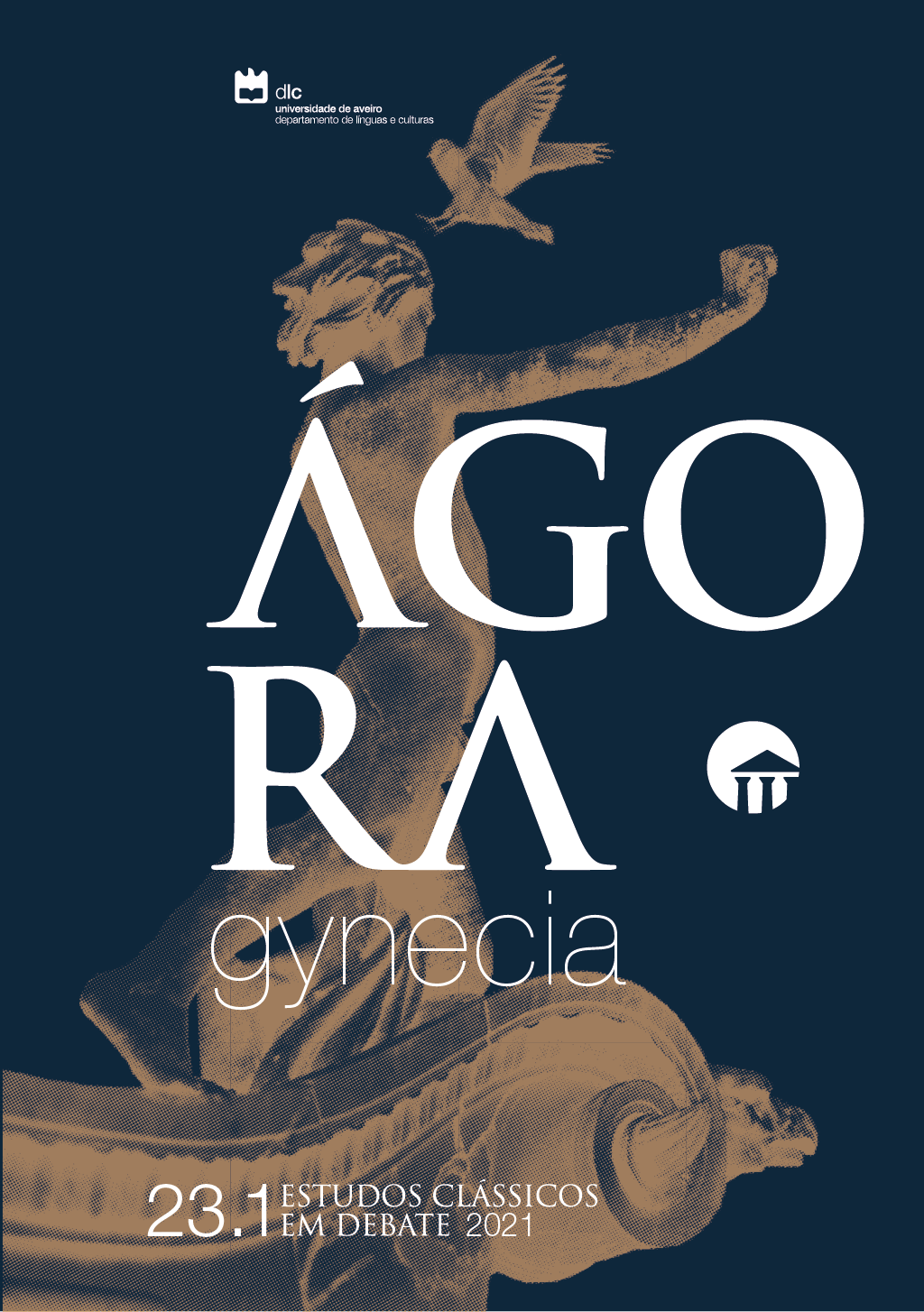A educatio de crianças e adolescentes no De uniuersa mulierum medicina de Rodrigo de Castro
Resumo
A discussão sobre os cuidados a ter com a alimentação e a educação física, intelectual e moral de crianças e adolescentes atravessou a Antiguidade, a Idade Média e o Renascimento. Tópico não raras vezes desenvolvido por tratadistas e enciclopedistas médicos, a educatio pueril e juvenil suscitou o interesse do iátrico luso Rodrigo de Castro (c.1546-1627/29?), que lhe dedicou o final da Primeira Parte do tratado De uniuersa mulierum medicina. Partindo do cotejo deste texto com escritos médicos anteriores, procuraremos reconstituir o regime preconizado para crianças e adolescentes ao longo dos vinte séculos que separam Mnesiteu de Atenas (séc. IV a.C.) e Castro, bem como refletir sobre o modo como o tratadista português incorporou no seu próprio discurso os elementos herdados da tradição antiga e medieval.
Downloads
Referências
ARRIZABALAGA, J. (2009), “Medical Ideals in the Sephardic Diaspora: Rodrigo de Castro’s Portrait of the Perfect Physician in Early Seventeenth-Century Hamburg”: T. HUGUET-TERMES, J. ARRIZABALAGA & H. J. COOK (eds.), Health and Medicine in Hapsburg Spain: Agents, Practices, Representations, Medical History. London, Wellcome Trust, 107-124.
DANSEN, V. (2010), “Des nourrices grecques à Rome?”: Paedagogica Historica: International Journal of the History of Education 46(6) (2010) 699-713.
DIAS, J. L. (1971), “Médecins Portugais de la Renaissance en Europe”: Estudos de Castelo Branco. Revista de História e Cultura 35 (1971) 5-35.
FLANDRIN, J.-L. & Montanari, M. (1996), Histoire de L’Alimentation. Paris, Librairie Arthème Fayard.
GARRISON, F. H. (1965), History of Pediatrics. Philadelphia, Saunders.
GENTILCORE, D. (2016), Food and Health in Early Modern Europe. Diet, Medicine and Society, 1450-1800. London, Bloomsbury.
LEMOS, M. (1909), Zacuto Lusitano: a sua vida e a sua obra. Porto, E. Tavares Martins.
OLIVEIRA, E. M. R. de (2020), “Qualis sit nutrix eligenda: a ama de leite no De universa mulierum medicina de Rodrigo de Castro”: Ágora. Estudos Clássicos em Debate 22 (2020) 43-58.
PANCINO, C. (2013), “Introduzione. Medicina delle donne, medicina per le donne dall’età moderna all’Ottocento”: L. GUIDI, & M. R. PELIZZARI (a cura di), Nuove frontiere per la storia di genere, vol. III. Padova, Webster Press.
PANCINO, C. (2017), “The medical gaze on early childhood between the 16th and 18th centuries”: Histoire culturelle de l'Europe (Regards portés sur la petite enfance en Europe (Moyen Âge-XVIIIe siècle)) 2 (2017). Retirado de http://www.unicaen.fr/mrsh/hce/index.php?id=611
PINHEIRO, C. S. (2017), “The Ancient Medical Sources in the Chapter about Sterility of Rodrigo de Castro’s De universa mulierum medicina”: G. DAVIS & T. LOUGHRAN (eds.) (2017), The Palgrave Handbook of Infertility in History: Approaches, Contexts and Perspectives. London, Palgrave Macmillan, 291-310.
Edições e traduções
AÉCIO DE AMIDA (1534), Aetii Amideni medici clarissimi Libri sexdecim nunc primum latinitate donati, in quibus cuncta quae ad artem curandi pertinente sunt congesta: ex omnibus qui usque ad eius tempora scripserant diligentissime excerpta... Veneza, Lucantonio Giunta.
AVICENA (1595), Auicennae arabum medicorum principis. Ex Gerardi Cremonensis uersione, et Andreae Alpagi Bellunensis castigatione.... Veneza, Lucantonio Giunta.
BUSSEMAKER U. C. & DAREMBERG, C. (eds.) (1858), Ouvres d’Oribase, texte grec, em grande partie inédit, collationné sur les manuscrits, traduit pour la première fois en français... (t. 3). Paris, L’Imprimerie Impérial.
CASTRO, R. de (1617), Roderici a Castro Lusitani, Philosophiae ac Medicinae Doctoris, per Europam notissimi, De uniuersa muliebrium morborum medicina nouo et antehac a nemine tentato ordine opus absoltissimum; et studiosus omnibus utile, medicis uero pernecessarium (Pars prima Theorica). Hamburgo, Johann Froben.
CASTRO, R. de (1617), Roderici a Castro Lusitani, Philosophiae ac Medicinae Doctoris, per Europam notissimi, De uniuersa muliebrium morborum medicina (Pars secunda, siue Praxis). Hamburgo, Johann Froben.
EGINETA, P. (1532), Pauli Aeginetae Opus de re medica, nunc primum integrum latinitate donatum per Ioannem Guinterium Andernacum, doctorem medicum. Paris, Simon de Colines.
EGINETA, P. (2011), O Médico Político ou tratado sobre os deveres médico-políticos (tradução de D. L. DIAS, revisão científica de A. CARDOSO e apresentação de D. GRACIA). Lisboa, Edições Colibri.
KÜHN, C. G. (ed.) (1821-1833), Claudii Galeni Opera Omnia (vols. 1-20), Leipzig, Carl Cnobloch.
PLATÃO (1925), Platon. Timée (texte établi et traduit par ALBERT RIVAUD). Paris, Les Belles Lettres.
PLATÃO (1976), Platon. Les Lois (texte établi et traduit par EDOUARD DES PLACES). Paris, Les Belles Lettres.
PLUTARCO (2008), Plutarco. Obra Morais. Sobre a Educação das Crianças (tradução do grego, introdução e notas de J. PINHEIRO). Coimbra, Centro de Estudos Clássicos e Humanísticos/Imprensa da Universidade de Coimbra.
SORANO DE ÉFESO (2003), Soranos d’Éphèse. Maladies des Femmes II (texte établi, traduit et commenté par P. BURGUERE, D. GOUREVITCH & Y. MALINAS). Paris, Les Belles Lettres.










